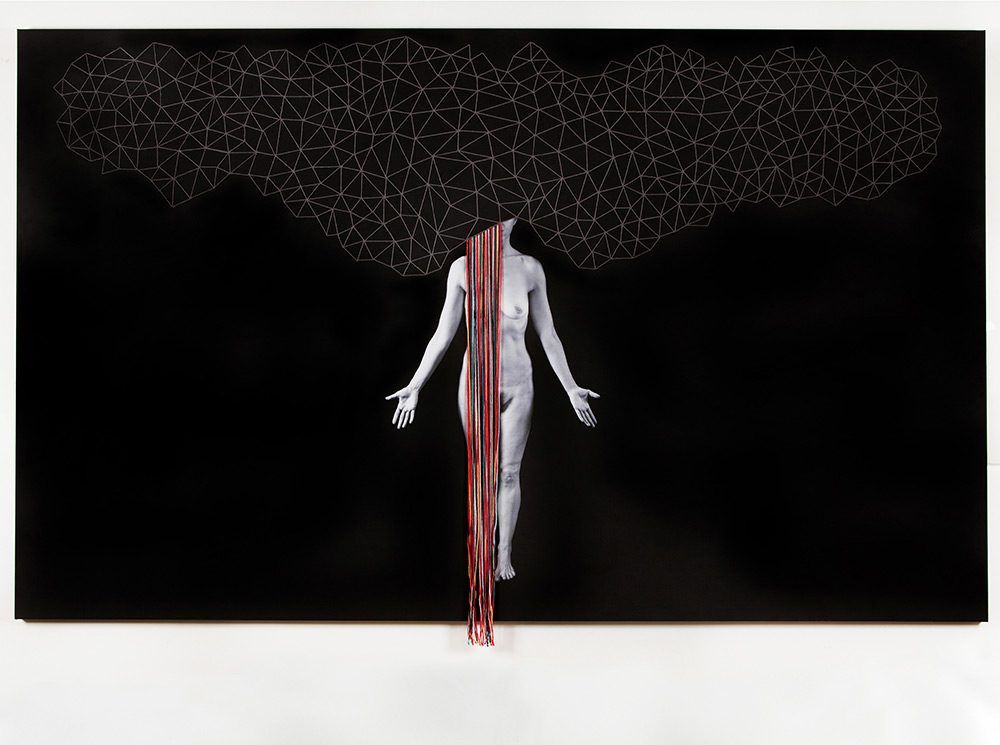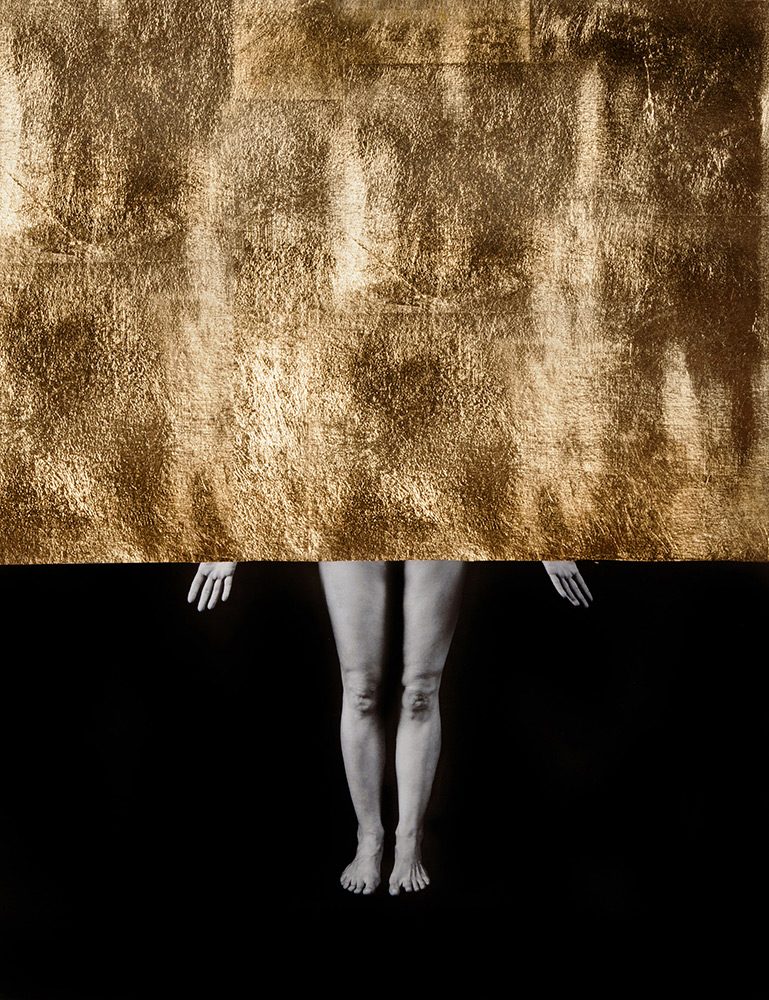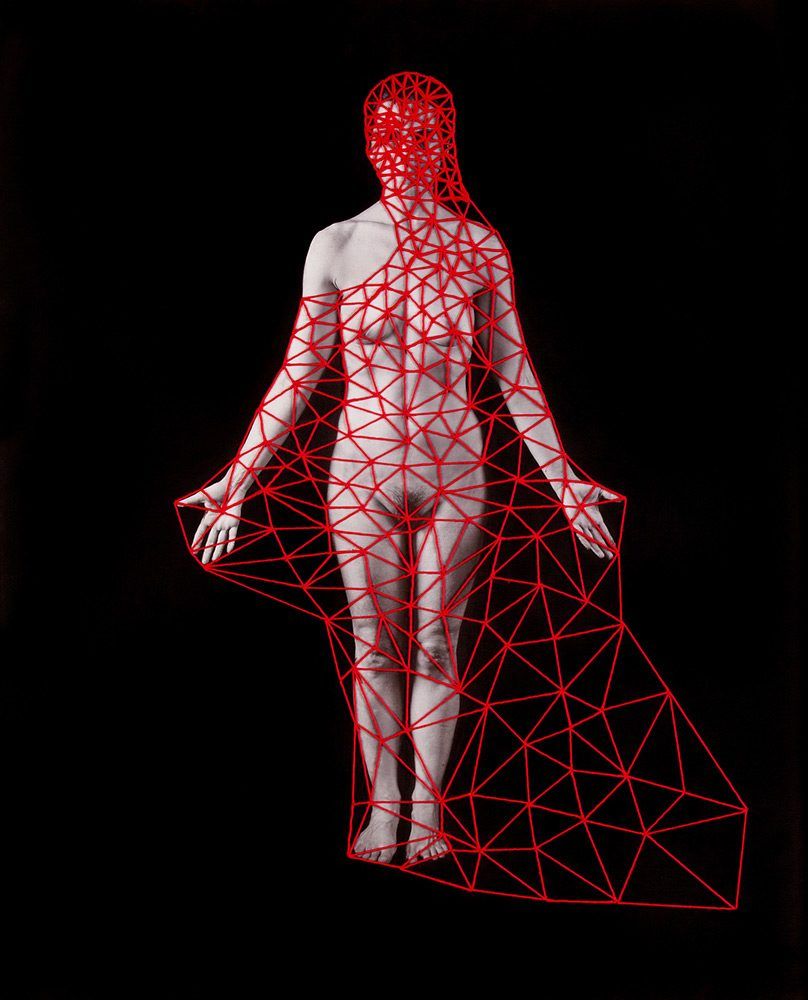blog
Interview with photographer Marina Font

Mental Structures
F-Stop Magazine: Tell us a bit about your background as a photographer
Marina Font: I studied art, design and photography at the Escuela de Artes Visuales Martin Malharro, Mar del Plata, Argentina, where I joined a local photo-club. Later, I studied photography at the Speos Ecole de la Photographie, in Paris, and in 2009 received my MFA in Photography from Barry University, in Miami.
F-Stop: The current issue of F-Stop Magazine features images from your project “Anatomy is Destiny”. Can you tell us about this project? What led to this work?
MF: “Anatomy is Destiny” is the title of my recently published first monograph, a collaboration with Minor Matters Books and Dina Mitrani Gallery. The book presents a selection of more than 75 photo-based works from the “Dark Continents” and “Mental Maps” series. These works explore ideas about identity, gender, territory, memory, and the forces of the unconscious. The book’s title, referencing Freud, also speaks to the ever-evolving understanding of gender and self-realization in the twenty-first century.
Each work stems from a single source black and white photograph of a nude female figure that I manually intervene with embroidery. By doing so, I aim to bring to light, and to the photographic surface, things experienced by the body, blending the lines between the external and internal spaces of the body.

Mental Structures II
F-Stop: Your work often explores identity and gender, what draws you to explore these topics in your art?
MF: My family was very divided in its political views, my father’s side from the military, and my mother’s side, British descendants. Growing up in a very patriarchal household and society in general, I experienced the role of women as “behind the scenes” and not having a strong voice or presence. I was also very influenced by psychoanalysis and Freud’s writings; being always disturbed by his denomination of women and women’s sexuality as “Dark Continents”, a term that he took from colonialism and referenced as “unknown” continents. I was inspired to challenge his quotes and “re-write” what femininity means, from a female perspective.
F-Stop: What is your process for making these images or your creative process more generally?
MF: I began photographing the female body, in a position reminiscent of Da Vinci’s Vitruvian Man, depicting the Virgin Mary and the medical field’s “anatomical position.” Then, each piece becomes unique in the application of embroidery, paint, yarn and other materials. Through the rituals of these traditionally feminine practices I intend to open a dialogue between biology and psychology, our social and private persona, and the evolving mutability of womanhood.

The Weight of a Perfect House
F-Stop: Where do you find inspiration for the images you create?
MF: The works are very intuitive and visceral. I approach the female body from three central planes: the biological, the psychological and the social, and the juxtapositions between them. I am inspired by personal experiences, and also by experiences shared by other women in my life, that I ultimately find to be universal. I am also interested in investigating the forces of the unconscious, those things that are beyond our reason and control.
F-Stop: What do you hope people feel or maybe learn from these photographs?
MF: I aim to give a “female gaze” on the female body, to open a dialogue about what it means to be a woman, what women experience and hope that the act of creating these works will help to re-write the idea of femininity.
F-Stop: Do you have a favorite image in this series? If so, which one and why is the image that speaks to you most?
MF: When I was working with Michele Dunn Marsh, of Minor Matters Books, on the layout of the book, we both independently, chose “Structures” out of 150 images as the cover. It is one of my favorite images and it represents a woman trapped within the social structures that she has been historically framed by, but on it’s way of breaking free of them…. It was also the first image of the “Dark Continents” series.

Structures
F-Stop: Why do you photograph or make art more generally? What compels you to make the images you create?
MF: For me art is a form of therapy, a way to look for answers for the multiple conflicts that one comes across every day. I also find the silent and repetitive act of embroidery and drawing with thread to be a form of meditation.
F-Stop: Are you working on any other projects currently?
MF: The “Mental Maps” is still an ongoing series, I am also working on the “Architecture of The Mind,” a project that explores the idea of the memories of the childhood home, with roots in architecture and the conception and exploration of the domestic space.
Two other projects are on the making as well, one related to the exploration of the physical family album and the second one with the constructed landscape of childhood.
F-Stop: What photographers or other artists inspire you?
MF: There are so many that I find it hard to begin… Graciela Sacco, Doris Salcedo, Frida Kahlo, Annette Messager, Kiki Smith, Louise Bourgeois….
For more of Marina Font’s work: www.marinafont.com,
To purchase Anatomy is Desire: https://minormattersbooks.com/products/marina-font-anatomy-is-destiny
Location: Online Type: Featured Photographer, Interview
One response to “Interview with photographer Marina Font”
Leave a Reply
Events by Location
Post Categories
Tags
- Abstract
- Alternative process
- Architecture
- Artist Talk
- artistic residency
- Biennial
- Black and White
- Book Fair
- Car culture
- Charity
- Childhood
- Children
- Cities
- Collaboration
- Community
- Cyanotype
- Documentary
- Environment
- Event
- Exhibition
- Faith
- Family
- Fashion
- Festival
- Film Review
- Food
- Friendship
- FStop20th
- Gender
- Gun Culture
- Habitat
- Hom
- home
- journal
- Landscapes
- Lecture
- Love
- Masculinity
- Mental Health
- Migration
- Museums
- Music
- Nature
- Night
- nuclear
- p
- photographic residency
- Photomontage
- Plants
- Podcast
- Portraits
- Prairies
- Religion
- River
- Still Life
- Street Photography
- Tourism
- UFO
- Water
- Zine

Wonderful article.